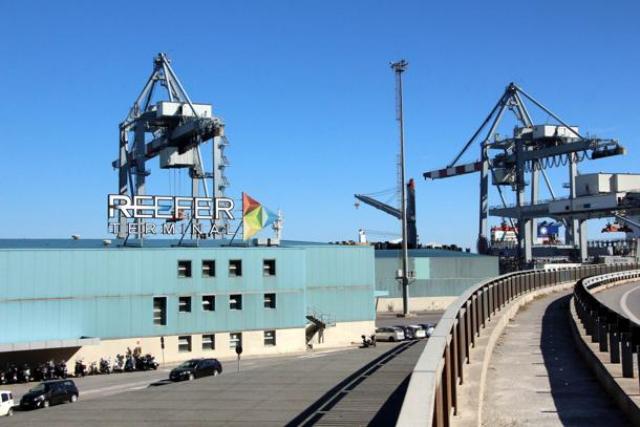 On friday (Aug 7) the GF Group sold the Vado Ligure reefer terminal to APM Terminals after having liquidated the French port of Sete’s fruit terminal last month. GF Group also concluded the transfer of 64% of ownership of APM, located in Vado. The transaction’s (which was assisted by Munari Giudici Maniglio Panfili & Associates for GF Portem, a GF subsidiary that was responsible for owning the terminal and NCTM Law Office which provided its assistance regarding APM) value is yet to be publicly announced. It is evident, though, that GF has managed to sell an asset that is among its most valuable ones and is now going to steer the business – as commented by group president Raffaella Orsero – toward “fruit and vegetables import and distribution” – by providing APM with the biggest fruit terminal when regarding the Mediterranean Sea, which perfectly suits the needs of medium-small size container carriers (a maximum capacity of 6,000 TEU) and with an annual capacity level of 250,000 TEU.
On friday (Aug 7) the GF Group sold the Vado Ligure reefer terminal to APM Terminals after having liquidated the French port of Sete’s fruit terminal last month. GF Group also concluded the transfer of 64% of ownership of APM, located in Vado. The transaction’s (which was assisted by Munari Giudici Maniglio Panfili & Associates for GF Portem, a GF subsidiary that was responsible for owning the terminal and NCTM Law Office which provided its assistance regarding APM) value is yet to be publicly announced. It is evident, though, that GF has managed to sell an asset that is among its most valuable ones and is now going to steer the business – as commented by group president Raffaella Orsero – toward “fruit and vegetables import and distribution” – by providing APM with the biggest fruit terminal when regarding the Mediterranean Sea, which perfectly suits the needs of medium-small size container carriers (a maximum capacity of 6,000 TEU) and with an annual capacity level of 250,000 TEU.
Alessandro Piccardo, the company’s current CEO, is to oversee the transition process from the old to the new management. When regarding the medium term, APM has decided to commit and continue the business plan set by the previous management in order to provide for establishing industrial continuity. The Orsero family is going to continue being clients of the terminal, via the Cosiarma subsidiary shipping company, with four vessels for fruit transportation. Carlo Merli, APM Terminals CEO, has come out and given his guarantee that, “the jobs and general activities are going to be at least consolidated, and if all goes accordingly, they are to be implemented.”
At the moment, the reefer terminal is responsible for employing roughly 100 people: given the new acquisition and the subsequent 2018 container platform completion, APM is going to have a structure at VADO that will have the capability of managing over a million TEU, with over 750 employees, and moorings for the newest container carriers available (with an 18,000-TEU capacity level), for intra-Mediterranean trade as well as for external routes used by major global carrier alliances. A thing worth pointing out is that the AP Moeller-Maersk group which is responsible for controlling APM, manages both container types, via the Seago and Maersk Line (world’s largest) companies, which are both clients of the nearby Genoa port.
The VIO (Vado Intermodal Operator), Savona Port Authority, which has held shares in the company since back in 2009, made a further investment of €23 million, increasing its part from 8% up to 72%. The shares that remain are property of Autostrada dei Fiori (28%). The final agreement, which was signed by Orsero and the port of Savona’s president, Gian Luigi Miazza, was finally completed after a long administrative process that went all the way back to 2014, and featured a further shareholding package of 64% regarding the company headed by the GF Group. VIO also happens to be an integral part for Maersk’s structural platform.
The Miazza operation has been the object of heavy discussions (due to the fact that it contributed for increasing public entity participation, when the goal is actually public divestment), but it, however, managed to obtain the approval of the EIB and the Ministry of Transportation and Economics. The prime objective is to provide support to Savona it its efforts of complying with the European Core port parameters. When regarding Italy, the Savona-designated strategy is the single one within the Delrio reform framework that emphasizes on maintaining the Authority as it currently is and vetoes the Genoa merger.